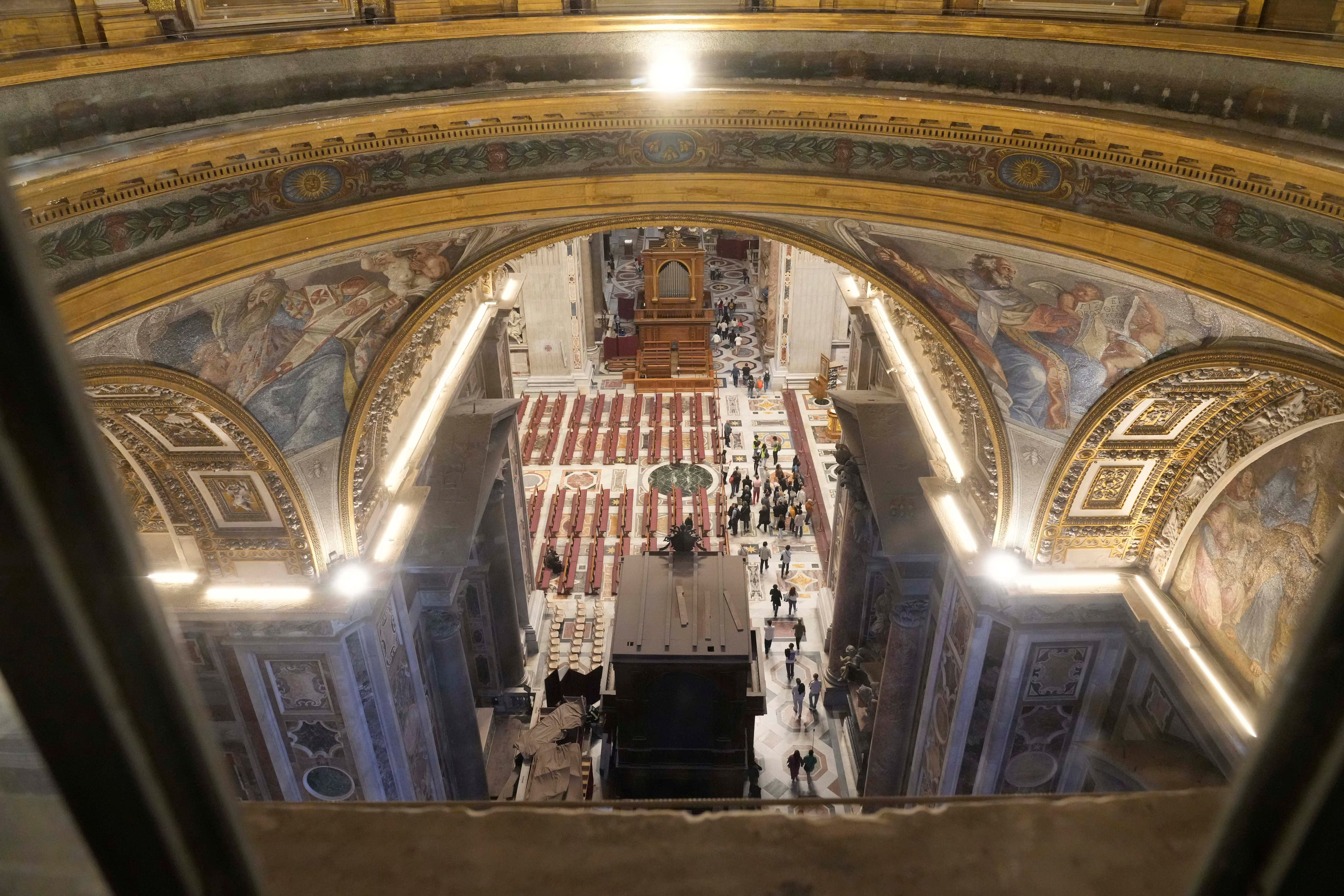VATICAN CITY (AP) — The Vatican and Microsoft on Monday unveiled a digital twin of St. Peter’s Basilica that uses artificial intelligence to explore one of the world’s most important monument’s while helping the Holy See manage visitor flows and identify conservation problems.
Using 400,000 high-resolution digital photographs, taken with drones, cameras and lasers over four weeks when no one was in the basilica, the digital replica is going online alongside two new on-site exhibits to provide visitors -- real and virtual -- with an interactive experience.
“It is literally one of the most technologically advanced and sophisticated projects of its kind that has ever been pursued,” Microsoft's president Brad Smith told a Vatican press conference.
The project has been launched ahead of the Vatican's 2025 Jubilee, a holy year in which more than 30 million pilgrims are expected to pass through the basilica’s Holy Door, on top of the 50,000 who visit on a normal day.
“Everyone, really everyone should feel welcome in this great house,” Pope Francis told Smith and members of the project's development teams at an audience Monday.
The digital platform allows visitors to reserve entry times to the basilica, a novelty for one of the world’s most visited monuments that regularly has an hours-long line of tourists waiting to get in.
But the heart of the project is the creation of a digital twin of St. Peter’s Basilica through advanced photogrammetry and artificial intelligence that allows anyone to “visit” the church and learn about its history.
The ultra-precise 3D replica, developed in collaboration with digital preservation company Iconem, incorporates 22 petabytes of data — enough to fill five million DVDs — Smith said.
The images have already identified structural damage and signs of deterioration, such as missing mosaic pieces, cracks and fissures invisible to the naked eye, with a speed and precision far beyond human capabilities.
Francis has called for the ethical use of AI and used his annual World Message of Peace this year to urge an international treaty to regulate it, arguing that technology lacking human values of compassion, mercy, morality and forgiveness were too great.
On Monday, he thanked the Microsoft team and basilica workers responsible for the project and marveled at how modern technology was helping spread an ancient faith and preserve a piece of world patrimony, which celebrates the 400th anniversary of its consecration in 2026.
“This house of prayer for all peoples has been entrusted to us by those who have preceded us in faith and apostolic ministry,” he told Smith and the delegation. “Therefore, it is a gift and a task to care for it, in both a spiritual and material sense, even through the latest technologies.”
Smith declined to give a price tag for Microsoft’s investment in the project, saying only it was “substantial” and was borne of Francis’ initiative in 2018 to bring tech companies together to promote ethnically minded AI.
He said Microsoft had done similar AI projects at Mont Saint-Michel in France and Ancient Olympia, in Greece.
___
Associated Press religion coverage receives support through the AP’s collaboration with The Conversation US, with funding from Lilly Endowment Inc. The AP is solely responsible for this content.









